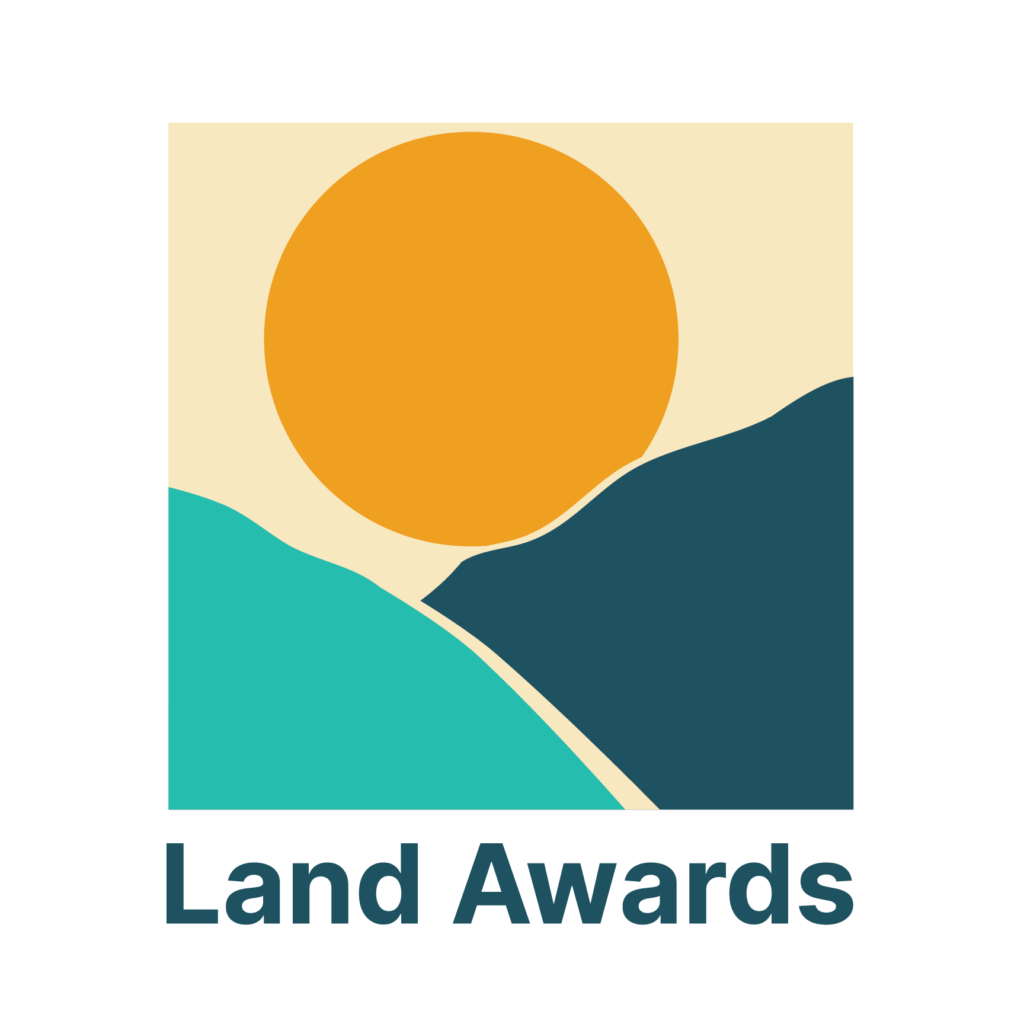
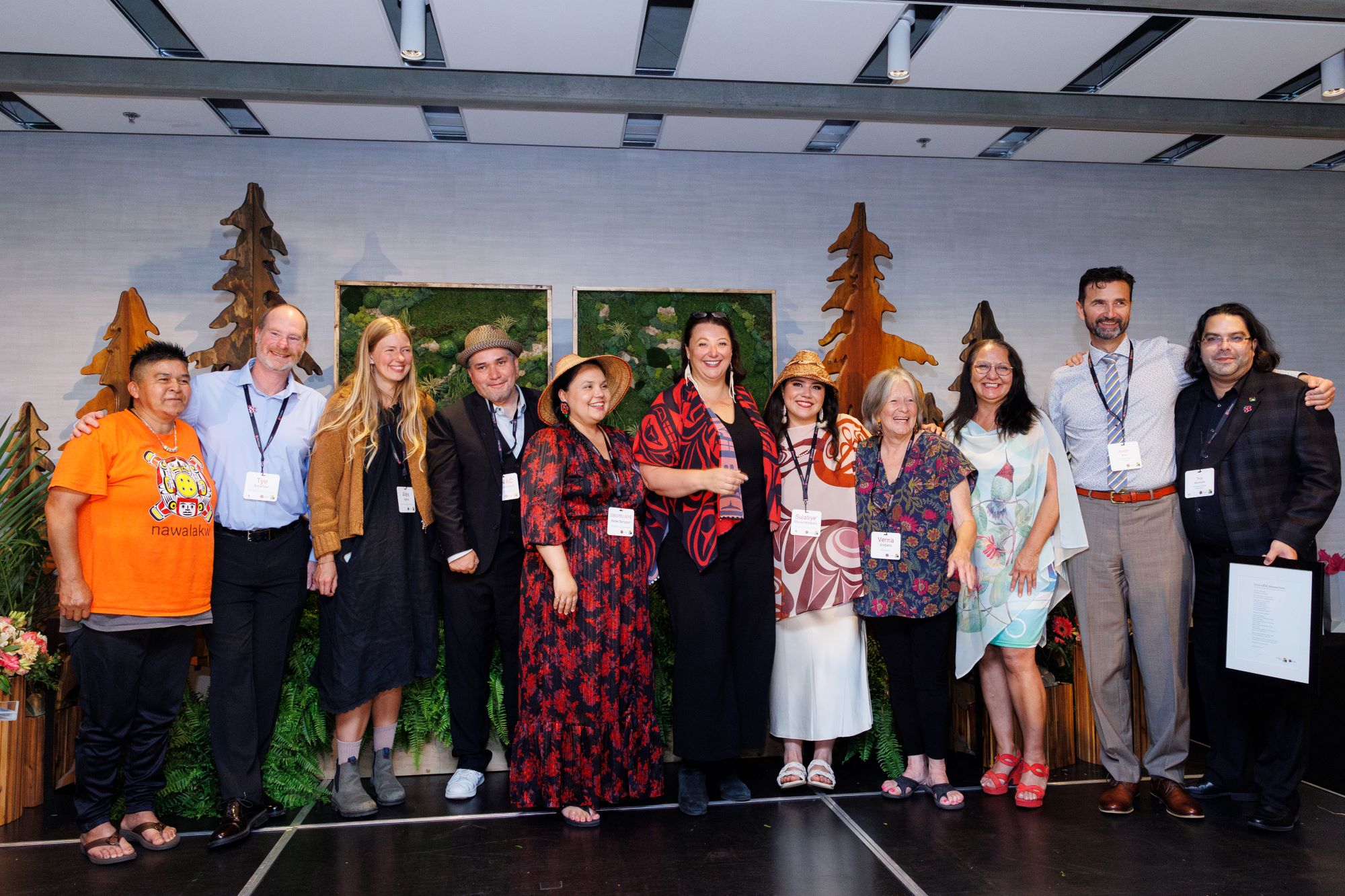
2024 Land Awards winners. Photo: Sarah Race
2024 Land Awards Winners: Celebrating Leaders and Projects in BC
Land Champion Xtli’li’ye Lydia Hwitsum and Emerging Leader Sulatiye’ Maiya Modeste recognized at Gala
Vancouver, BC / xʷməθkwəy̓əm, Sḵwx̱wú7mesh, and səlilwətaɬ territories (June 13, 2024)
At the 2024 Land Awards Gala, the Real Estate Foundation of BC (REFBC) presented awards to five projects and two individuals demonstrating exceptional leadership in sustainable, equitable, and socially just land use.
Established in 2010, the biennial Land Awards recognize outstanding projects and leaders in BC that protect the lands and waters we love and create sustainable, inclusive, and resilient communities.
On June 13, REFBC welcomed almost 250 guests to the Gala at Arras Banquet & Event Space in Vancouver.
“We’re honoured to celebrate remarkable leaders and organizations forging better relationships between lands, waters, and people,” said Mark Gifford, CEO of REFBC. “By sharing success stories from across BC, we hope to build bridges and inspire lasting change. We commend all the winners and finalists for their leadership.”
Award-winning journalist Angela Sterritt Lu Algaxit Ts’im Xsblist, author of Unbroken, emceed the Gala. Special guests included poet ’Cúagilákv Jess Housty, author of Crushed Wild Mint; Heiltsuk artist K.C. Hall; and Brejera, a Brazilian music ensemble.
Nominations for project awards were judged by committees composed of community leaders and subject-matter experts. To evaluate projects, judges considered innovation, impact, collaboration, and engagement; sustainability, equity, and social justice; Indigenous self-determination and reconciliation; and climate mitigation and adaptation. The winners of the individual awards were selected by a panel of past chairs of REFBC’s Board of Governors.
The 2024 Land Awards winners and finalists are listed below, by category.
Land Champion
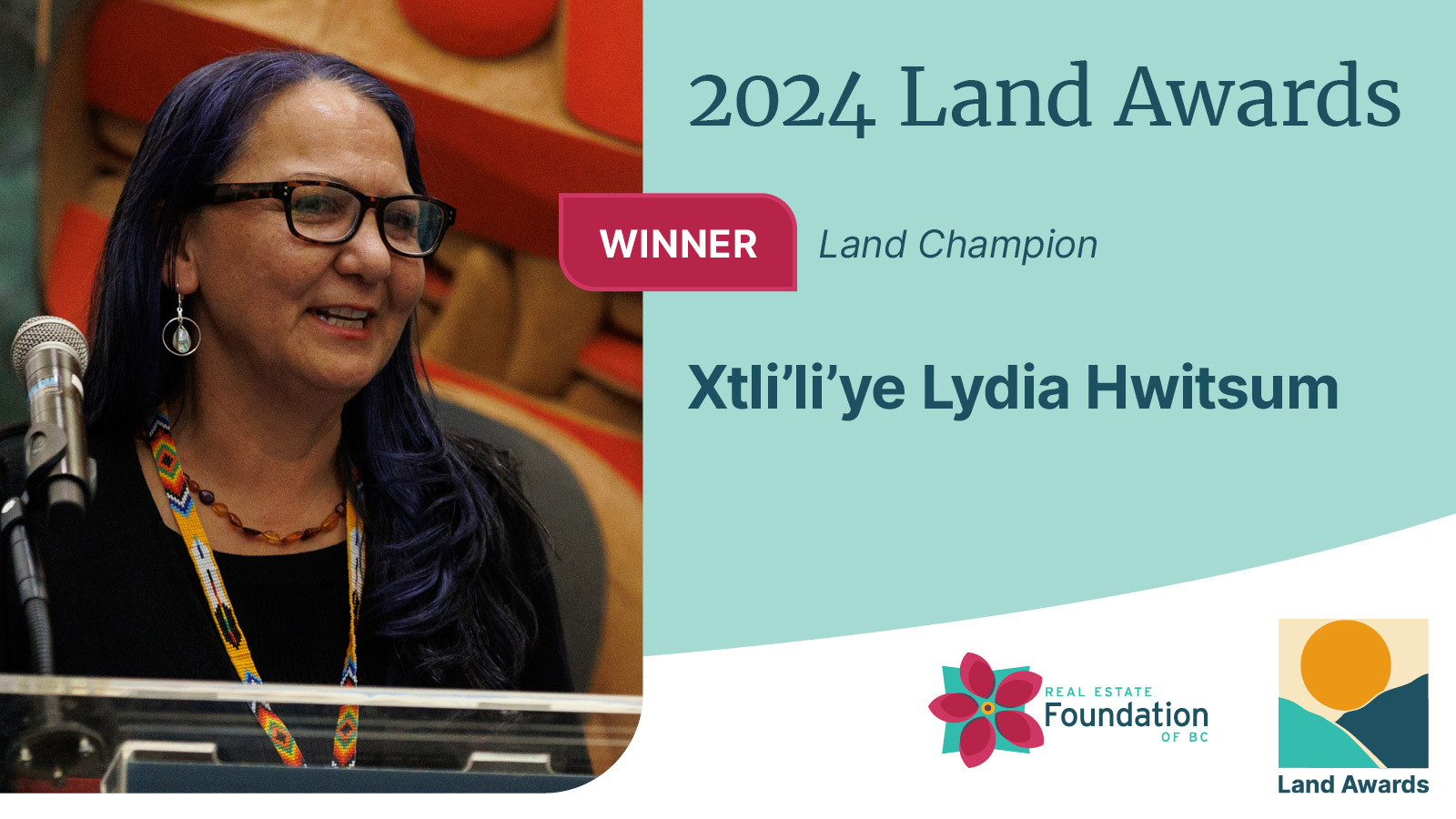
WINNER:
Xtli’li’ye Lydia Hwitsum
Lydia Hwitsum has advocated for Indigenous and human rights locally, nationally, and internationally. Lydia is from the Quw’utsun Nation and served 10 years as elected chief of the Cowichan Tribes on Vancouver Island. She has 30 years of experience in Indigenous leadership positions and has served the community in many capacities. Currently, Lydia is Co-chair of the BC-First Nations Water Table, Co-commissioner of the First Nations Water Caucus, a member of the Watershed Security Fund Joint Executive, a BC Treaty Commissioner, and a Director for the BC First Nations Justice Council. A bridge-builder, she previously co-chaired the Cowichan Watershed Board, a unique partnership between First Nations and local governments that promotes collaborative stewardship of the Cowichan and Koksilah watersheds. Lydia also sat on the Indigenous Leaders Advisory Circle for the Healthy Watersheds Initiative. She speaks the Hul’q’umi’num’ language and is guided by Cowichan values and teachings.
Emerging Leader
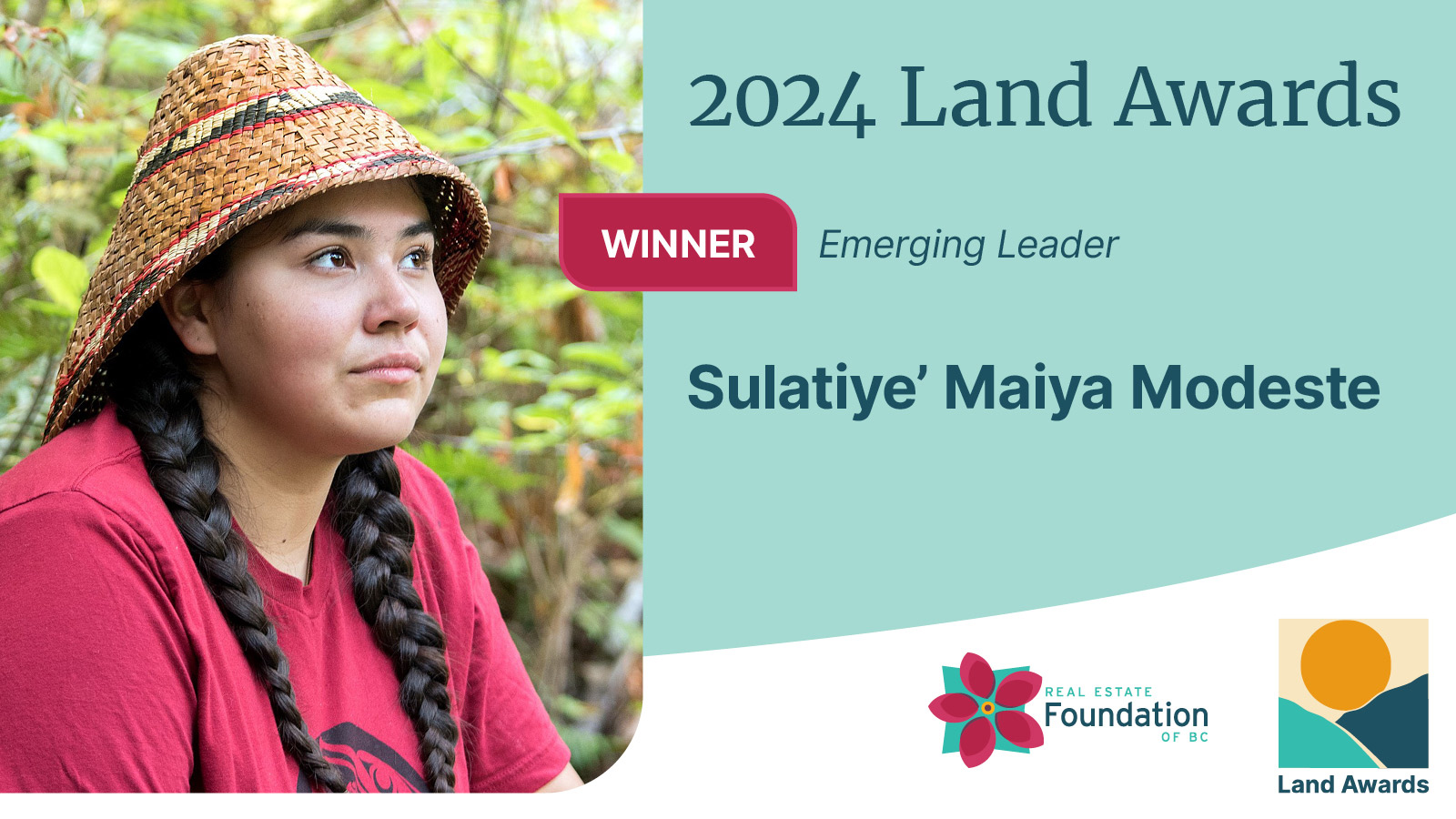
WINNER:
Sulatiye’ Maiya Modeste
Maiya Modeste is the P’hwulhp (Garry Oak) Restoration Project Coordinator for the Stqeeye’ Learning Society. Stqeeye’ is an Indigenous-led organization undertaking land restoration and education around Xwaaqw’um, a Quw’utsun village site on Saltspring Island. Maiya’s work to revitalize once-thriving Indigenous food systems is guided by traditional teachings and Indigenous ways of knowing and being. A gifted speaker, she is passionate about educating Indigenous youth about traditional foods, such as Speenhw (camas), and hopes to feed Elders traditional meals. Maiya also sits on the Board of Directors for the Quw’utsun’ Cultural Connections Society.
Land Use and Conservation
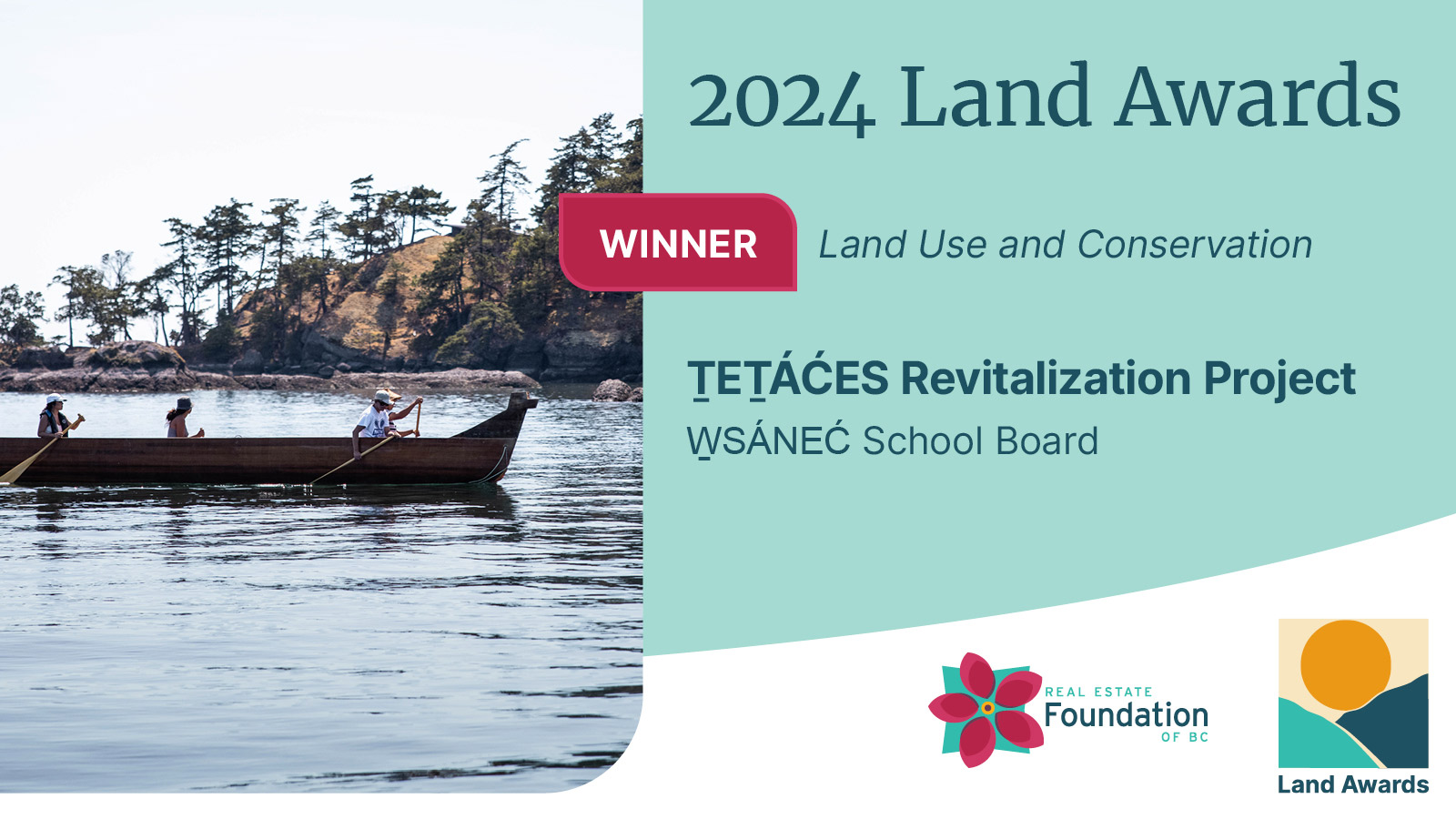
WINNER:
W̱SÁNEĆ School Board
ṮEṮÁĆES Revitalization Project
The ṮEṮÁĆES Revitalization Project has supported the reconnection of W̱SÁNEĆ people with their homelands in the southernmost Gulf Islands. These islands are known as ṮEṮÁĆES — meaning “Relatives of the Deep” — in the SENĆOŦEN language. Project partners include the W̱SÁNEĆ Leadership Council, Southern Gulf Islands Community Resources Centre, South Pender Historical Society, University of Victoria Living Lab Project, and Raincoast Conservation Foundation. Four films featuring Elders have been created. These are shown to students at the tribal school and have inspired Islanders to get involved in Reconcili-Action initiatives.
FINALISTS:
- Líl̓wat Forestry Ventures
Q̓welq̓welústen/Mount Meager Landslide Restoration - Nadleh Whut’en First Nation, Stellat’en First Nation & Society for Ecosystem Restoration in Northern BC
Yun Ghunli (Defenders of the Land) - Nature-Based Solutions Foundation
IPCA Conservation Financing for Endangered Ecosystems
Fresh Water
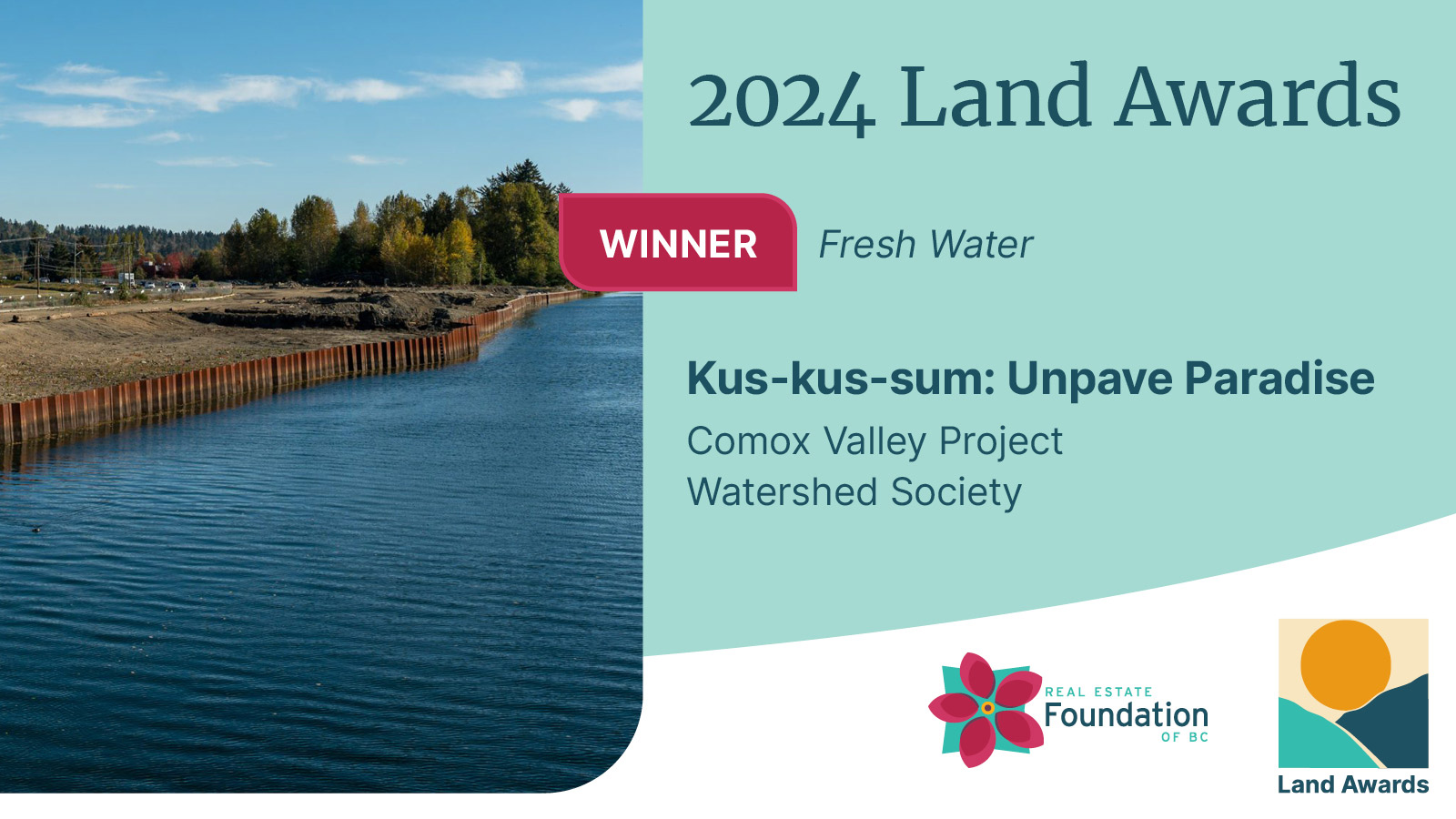
WINNER:
Comox Valley Project Watershed Society
Kus-kus-sum: Unpave Paradise
Kus-kus-sum is a former sawmill site in the K’ómoks Estuary that’s become a leading example of collaboration and reconciliation. In partnership with the K’ómoks First Nation and City of Courtenay, Project Watershed has ripped out steel and concrete to restore a tidal marsh. Once restoration is complete, the property will be returned to the K’ómoks First Nation and protected by a conservation covenant. The First Nation gave the name Kus-kus-sum (meaning “slippery” in Ayajuthem) to the site in remembrance of an ancient village.
FINALISTS:
- Kingfisher Interpretive Centre Society
Conservation Through Education - Living Lakes Canada
Columbia Basin Water Monitoring Framework - Nature Trust of BC
Enhancing Estuary Resilience: An Innovative Approach to Sustaining Fish and Fish Habitat in a Changing Climate - Watershed Watch Salmon Society
Connected Waters: Working Together for a Resilient Floodplain
Built Environment
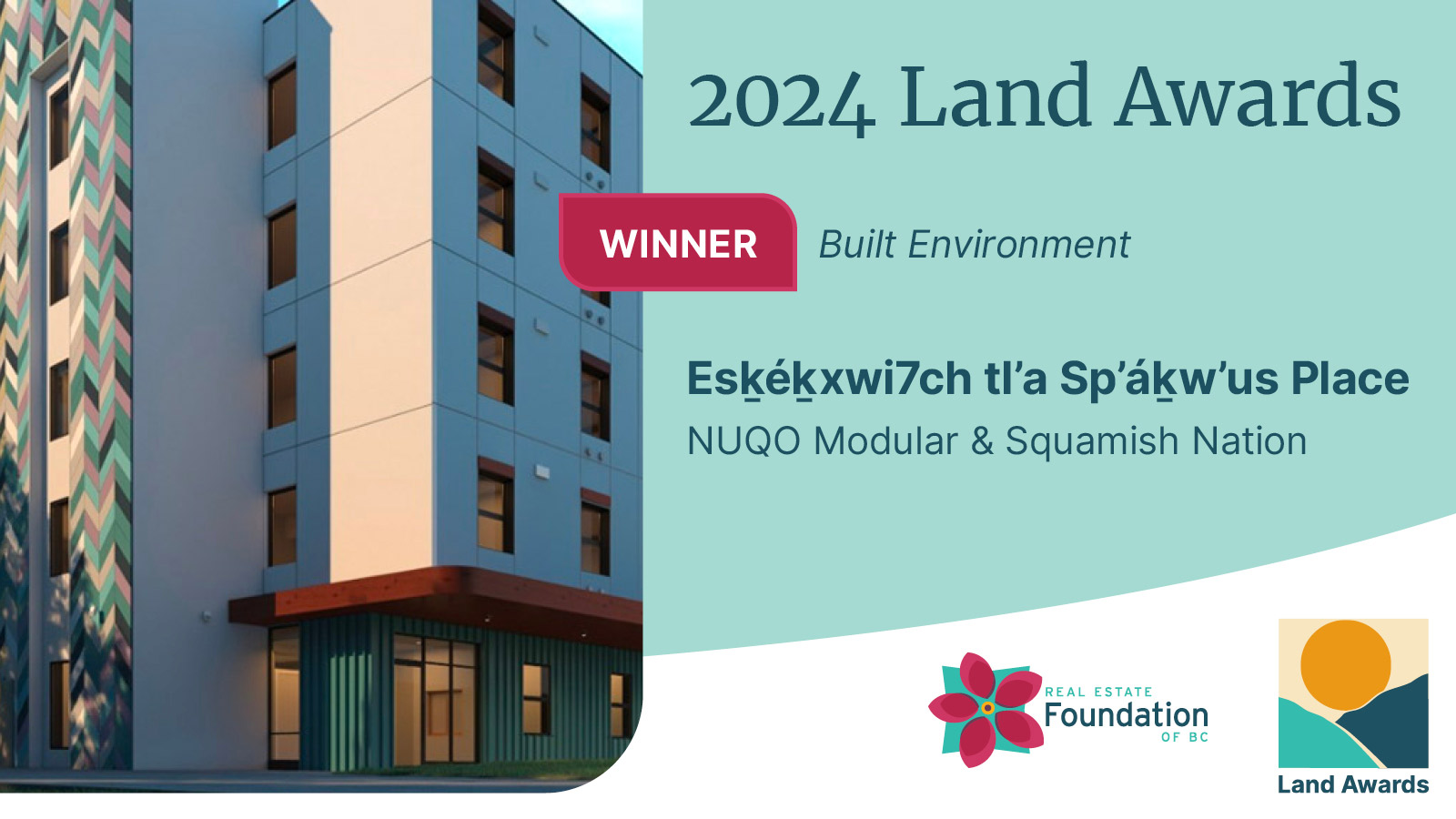
WINNER:
NUQO Modular & Squamish Nation
Esḵéḵxwi7ch tl’a Sp’áḵw’us Place
Esḵéḵxwi7ch tl’a Sp’áḵw’us means “Gathering Place of the Eagles” in Sḵwx̱wú7mesh Sníchim. Located at Siyich’em, the 27-unit supportive housing development is a key step toward the Squamish Nation’s goal of housing every Squamish person within a generation. The complex was built quickly using sustainable construction methods, prioritizes accessibility, and provides affordable rental homes to Squamish Nation members — particularly vulnerable women and children. Managed by Hiy̓ám̓ Housing, it’s energy efficient and its construction provided jobs and training to members of the Nation.
FINALISTS:
- BC Transit
Victoria handyDART Centre - Climate Caucus
Managing Natural Assets: Handbook for Local Governments - Kambo Energy Group
Empower Me - Pembina Institute, BC Non-Profit Housing Association, City of Vancouver & Metro Vancouver Housing Corporation
Reframed Initiative and Lab
Food Sovereignty
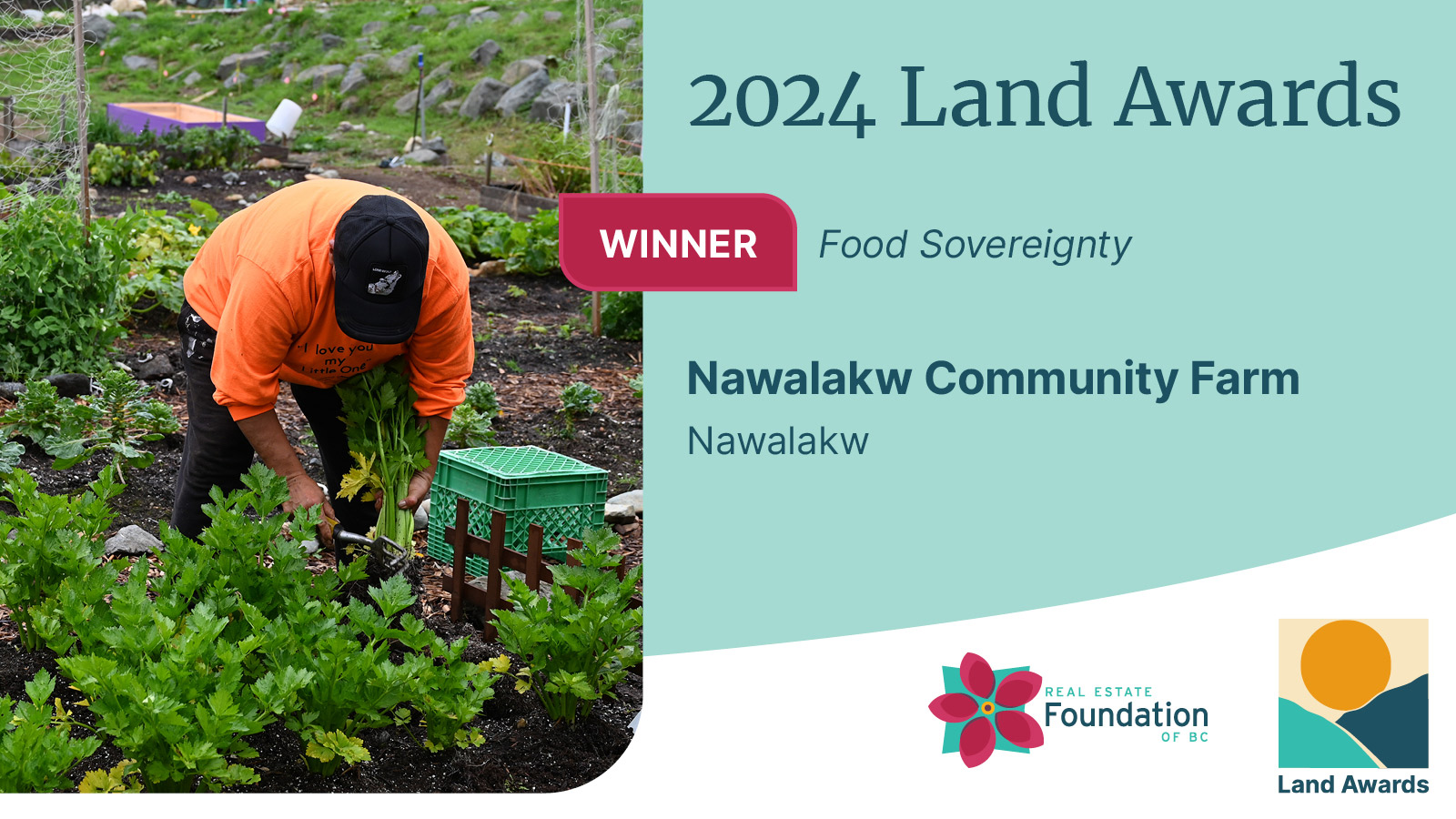
WINNER:
Nawalakw
Nawalakw Community Farm
Nawalakw is a social venture that creates presence and environmental stewardship in Kwakwa̱ka̱ʼwakw territory — while reinvigorating the language and culture. Its name means “supernatural” in Kwak̓wala. The Nawalakw Food Security Program aims to empower Kwakwa̱ka̱’wakw communities through access and control over healthy foods based on their cultural values. The Nawalakw Garden — located on ’Namgis land in remote Alert Bay — feeds Elders, provides seasonal jobs for youth, and serves as a place of training, mentorship, and healing.
FINALISTS:
- Rivershed Society of BC
sc̓e:ɬxʷəy̓əm/Salmon River – Foodlands Corridor Restoration Program - Salish Sea Regenerative Farm Society
Salish Sea Regenerative Farm
Real Estate
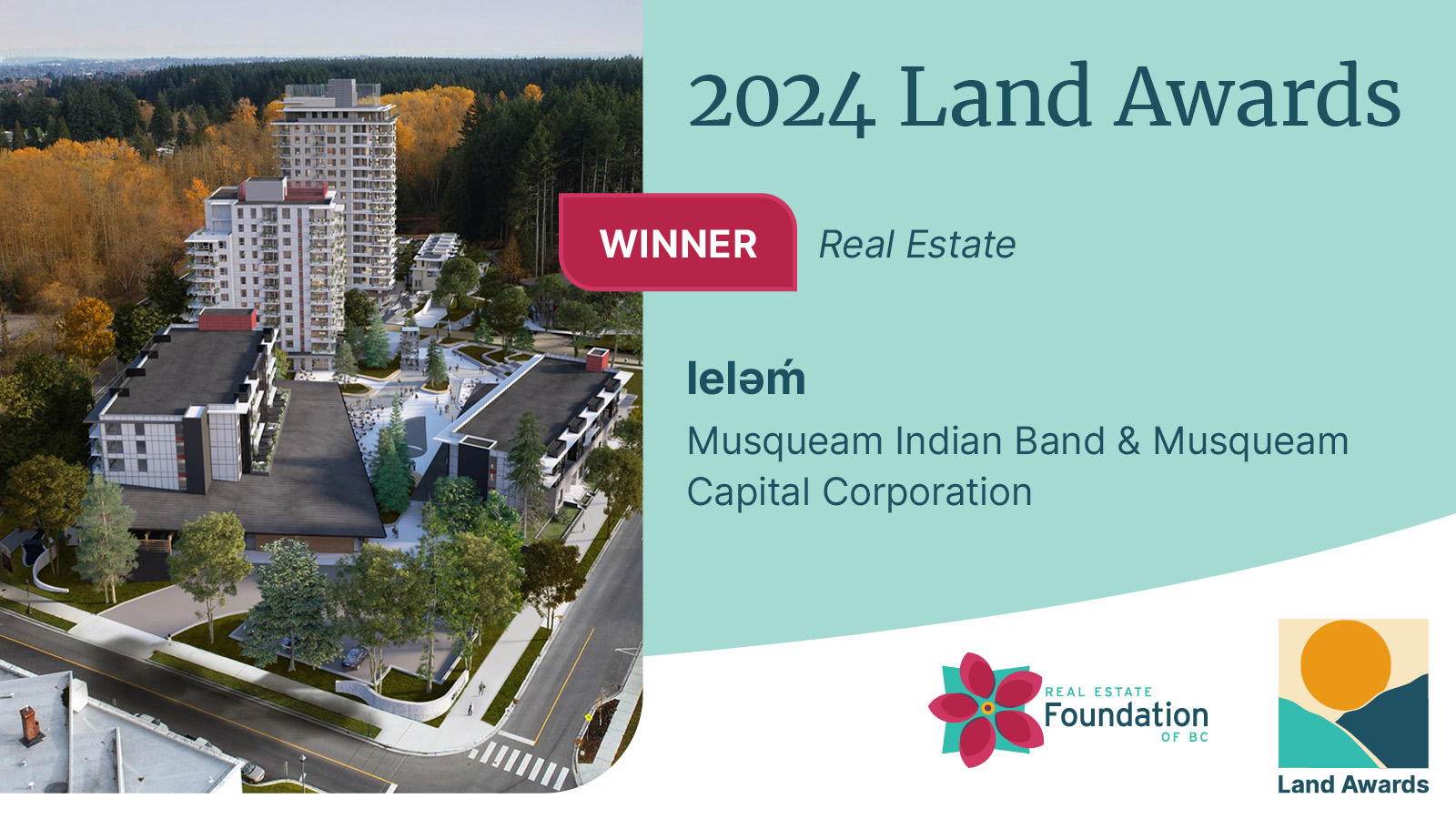
WINNER:
Musqueam Indian Band & Musqueam Capital Corporation
lelǝḿ
lelǝḿ is a master-planned community being developed on Musqueam-owned land at the entrance to UBC Vancouver. Community engagement with Musqueam members and area residents informs the mixed-use development — which integrates Musqueam art and culture as well as district energy and rainwater gardens. lelǝḿ features market and non-market housing, a community centre, daycare, wetland, and forest paths, and has its own community events.
FINALISTS:
- BC Northern Real Estate Board
Water and Land Sustainability Issues Webinar Series - Greater Vancouver Realtors
Diversity, Equity and Inclusion Campaign - Real Estate Institute of BC
Advancing Excellence Initiative
Join the conversation: #LandAwards @REFBC
Learn more: landawards.com
-30-
Contact
Stephen Hui
Communications Manager, Real Estate Foundation of BC
778-357-1423
stephen@refbc.ca
About Us
The Real Estate Foundation of BC (REFBC) is a philanthropic organization working to advance sustainable, equitable, and socially just land use across BC. We fund projects, connect people, and share knowledge.
Learn more: refbc.ca
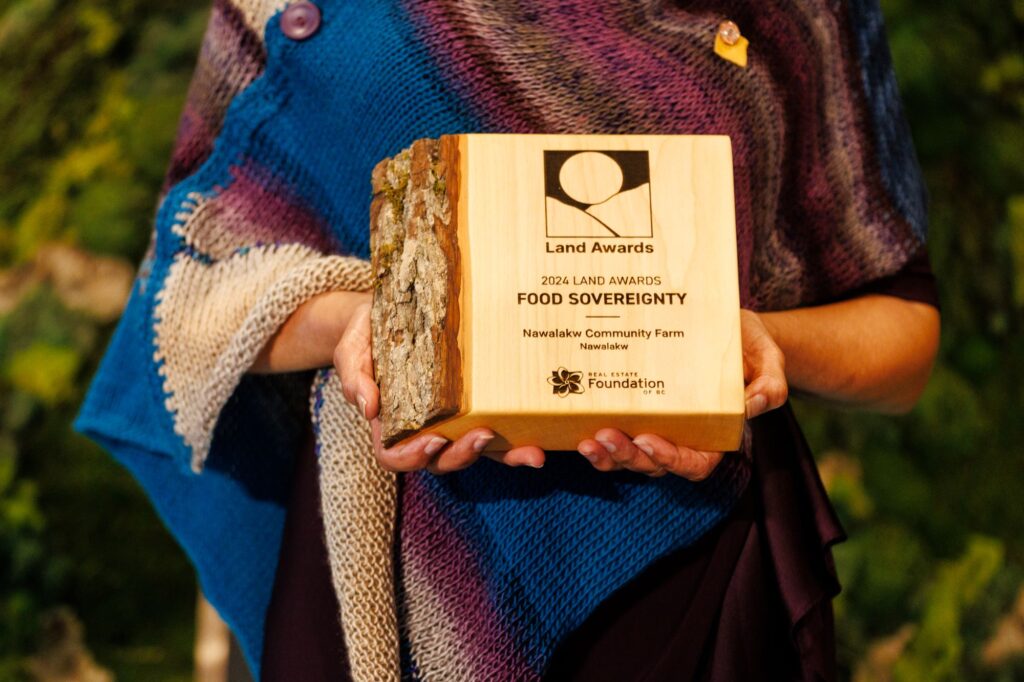
SHARE
